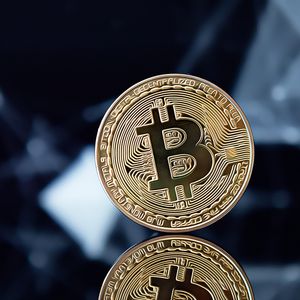Market Pulse
In a powerful testament to Bitcoin’s evolving narrative beyond mere speculative asset, anticipated 2025 Nobel Peace Prize winner, María Corina Machado, has publicly endorsed the cryptocurrency as crucial ‘resistance money’ for the people of Venezuela. Her outspoken advocacy highlights the digital asset’s potential as a tool for economic freedom and human rights in nations grappling with hyperinflation, capital controls, and authoritarian rule. This significant endorsement from a prominent global figure underscores Bitcoin’s growing recognition as a fundamental instrument for sovereignty, particularly in regions where traditional financial systems are weaponized or fail.
María Corina Machado’s Advocacy
María Corina Machado, a formidable Venezuelan opposition leader and human rights activist, has gained international acclaim for her unwavering commitment to democratic principles and civil liberties. Her relentless efforts against the Venezuelan regime have positioned her as a leading voice for change, earning her widespread recognition and a strong likelihood of securing the Nobel Peace Prize. Machado’s recent remarks on Bitcoin are not just a casual mention but reflect a deep understanding of its potential to empower citizens against state overreach and economic oppression. She views Bitcoin not as a luxury investment, but as a practical necessity for survival and a pathway to reclaiming economic dignity for millions.
Bitcoin as a Tool for Resistance
For individuals living under repressive or economically unstable regimes, access to uncensored and inflation-resistant money is paramount. Bitcoin, with its decentralized nature and limited supply, offers a stark contrast to traditional fiat currencies that can be devalued or controlled by governments. Machado’s embrace of Bitcoin as ‘resistance money’ encapsulates several key benefits:
- Censorship Resistance: Bitcoin transactions are peer-to-peer and cannot be easily blocked or reversed by governments, allowing citizens to bypass financial blockades.
- Inflation Hedge: In a country like Venezuela, where hyperinflation has decimated the local currency, Bitcoin’s fixed supply offers a sanctuary for savings.
- Access to Global Economy: It enables individuals to participate in the global economy, facilitating remittances and international trade without reliance on restrictive state-controlled banks.
- Empowerment: It provides a means for individuals to control their own wealth, free from confiscation or devaluation by politically motivated actors.
The Venezuelan Context: Economic Turmoil and Digital Adoption
Venezuela has long been a poignant example of economic collapse and political instability. Years of hyperinflation, severe shortages, and stringent capital controls have pushed millions into poverty. In this environment, digital assets, particularly Bitcoin, have found a practical use case among the populace. Venezuelans have increasingly turned to cryptocurrencies for remittances, daily transactions, and as a store of value, often out of necessity. Machado’s endorsement is not just symbolic; it reflects an existing reality on the ground where crypto has become a lifeline for many struggling citizens, affirming its role as a decentralized alternative in times of crisis.
Broader Implications for Digital Rights
Machado’s advocacy extends beyond Venezuela, sending a powerful message about the intersection of digital rights and human rights on a global scale. As more nations grapple with economic challenges or authoritarian tendencies, the narrative of Bitcoin as ‘freedom money’ gains significant traction. This perspective positions Bitcoin not just as a financial innovation, but as a crucial technology for maintaining individual autonomy and economic liberty in an increasingly digital and often surveilled world. It encourages a broader conversation about the role of decentralized technologies in fostering resilience against state-imposed financial restrictions.
Conclusion
The endorsement of Bitcoin by María Corina Machado, a figure synonymous with the fight for democracy and human rights, marks a pivotal moment for the cryptocurrency’s narrative. It elevates Bitcoin from a niche tech phenomenon to a recognized tool for resistance and economic empowerment on the world stage. Her insights from the front lines of Venezuela’s struggle serve as a stark reminder of Bitcoin’s real-world utility and its profound potential to offer hope and sovereignty to populations facing unprecedented challenges. As the world watches, this alliance between a Nobel Peace Prize contender and decentralized finance solidifies Bitcoin’s foundational role as a beacon of freedom.
Pros (Bullish Points)
- Boosts Bitcoin's global narrative as a 'freedom technology'.
- Highlights real-world utility of crypto in oppressive regimes.
- Increases awareness of Bitcoin's censorship-resistant properties.
Cons (Bearish Points)
- May attract increased scrutiny from governments on crypto usage.
- Bitcoin's price volatility could still pose risks for vulnerable users.
- Accessibility challenges remain in areas with limited internet/device access.



